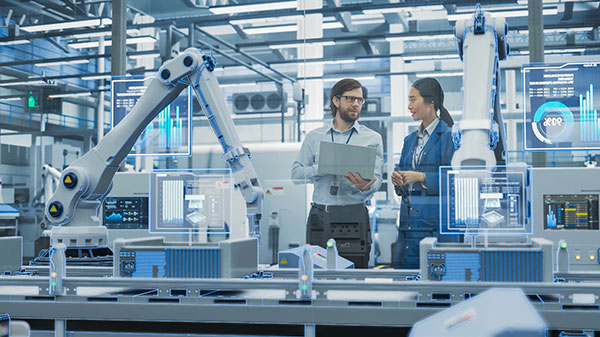- Trump, SoftBank CEO Masayoshi Son announce $100bn US investment | Donald Trump News
- Canada will invest in border as deficit balloons, dollar weakens
- How A Chicago Health System’s $1 Billion Investment Advances Equity
- Investment Funds Remained Long on Copper in 2024
- SoftBank CEO Son, Trump Announce $100B US Investment Plan
Efforts, especially in the United States, to reduce the reliance on foreign trade have gained steam over the past decade. The concept of shipping manufacturing jobs overseas in search of cheaper labor accelerated in the early 2000s, turning what was once a workforce employing over 14.5 million people in 2000 to a low of 11.5 million in 2010. From 2011 through 2023, data from the U.S. Bureau of Labor Statistics shows the country has recovered just over 1 million jobs, to 12.9 million by 2023.
You are viewing: Majority of companies have slowed or stopped offshore manufacturing investment
Part of that is likely due to the push started under then-President Donald Trump to incentivize domestic manufacturing, and which continued under the Biden administration. The CHIPS and Science Act, Infrastructure Investment and Jobs Act, Inflation Reduction Act, and the Build America, Buy America Act, as well as the introduction of tariffs in the 2018 to 2020 timeframe on imported goods from China to the U.S., have driven the desire to diversify supply chains and bring manufacturing closer to or even into the U.S.
Now, with President-elect Donald Trump threatening widespread tariffs on imported goods, interest in the nearshoring/reshoring trend is again accelerating. A new survey from Bain & Company confirms anecdotal evidence of what is taking place in the marketplace.
See more : The Best of “Rule Breaker Investing” 2024
(Photo: Bain & Company)
According to the firm, 81% of 166 CEOs and COOs surveyed have plans to bring supply chains closer to market, an increase of 18 percentage points since 2022. Split-shoring (46%) and nearshoring (18%) also received heavy interest. Conversely, only 36% of executives expect to continue investment in offshoring. But only 2% of companies reported completing their reshoring plans, indicating that the trend will continue.
“We believe the current acceleration of reshoring across key markets worldwide is a crucial trend that demands CEOs’ attention,” said Hernan Saenz, Bain & Company partner and global head of the firm’s Performance Improvement practice. “The multiple disruptions companies have grappled with since the pandemic mean the question for company leaders is no longer whether to reinvent supply chains but how to do that so their operations are made more cost-competitive, resilient, sustainable, and agile in responding to evolving markets and customer needs.”
See more : Fancy a 13.9% dividend yield? Consider these dirt-cheap investment trusts!
Bain’s analysis found that “apparent concerns over decoupling of economic blocs contributing to a rise of more than 25% in the proportion of companies seeking to reduce dependence on China,” it said, adding that “the proportion of companies reporting moves to shift operations out of China has risen to 69% in 2024, from 55% in 2022.”
The Inflation Reduction Act, passed in 2022 and which incentivizes U.S. companies to reshore or nearshore manufacturing with subsidies and tax credits, is cited by Bain as a primary reason companies in markets such as semiconductors, clean energy technologies and electric vehicle supply chains, have been increasingly moving their supply chains closer to the U.S. The CHIPS Act has played a particularly strong role in semiconductor investment in the U.S., it said.
“The powerful forces driving the patterns of reshoring, nearshoring and split-shoring that our findings show will persist and confront company leaders with the challenge and opportunity of transforming their supply chains for reshaped global markets,” said Adam Borchert, Bain & Company partner in the firm’s Performance Improvement practice and global lead of its Supply Chain practice. “We are helping clients to navigate these shifts and build supply chains that meet market needs, are resilient and future-proofed, while strengthening management capabilities to adapt to further change in an uncertain world of constant turbulence.”
SC
MR
Source: https://magnacumlaude.store
Category: News




